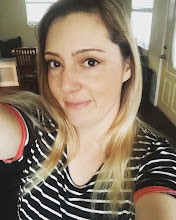One day, while teaching in Chicago (praying that one of my students would show up to class high, because he participated better when he did), my friend Heather called me and said that Marshall Field's (now Macy's) was sponsoring the Lincoln Center Jazz Orchestra over at the symphony hall.....FOR FREE and all we had to do was stand in line, did Tyson and I want to go? Of course, I said yes and we went with her and our other friend Krista, listened to it and had a great time. We went downstairs to use the restroom, and one of the ushers says "hey you guys wanna go backstage?"
(well DUH)
So we got to meet Wynton and the band, and while Krista, Tyson, and I were totally geeking out and being awkward, Heather walks right up to him like she owned the place and shakes his hand saying "I think you're brilliant, and you should come have a drink with us at the Green Mill [a jazz club in the north part of town]." He says he'll talk to the guys and maybe that sounds like fun. We walk away and get a cab, chattering about how cool he was and YEAH RIGHT he's not coming up there, but we can go hear some more music anyway. Told the bouncer what happened, and he sat us right next to the entrance in a giant booth AND HE CAME IN AND SAT WITH US. Had tea, and sat in between Heather and Krista ("best seat right between two attractive ladies") and talked with me and Tyson about teaching music in the inner city, and the issues we were having with African American kids from the projects not being all that receptive, despite our successes with the same demographic in Seattle.
Fast forward almost ten years, and we go see the LCJO again in Portland. With a lot more musical and life maturity behind us, and a different philosophical view of the purpose of music.
All the way through the performance, I thought two things: "Why am I not having an emotional response?" and "wow they are REALLY GOOD. That's how that's supposed to sound." It felt a lot like being at a symphony concert. For the most part, I marveled at the individual skill of the players, the polish of the ensemble playing, but in my head I heard Wynton's voice from the first episode of Ken Burns'
Jazz documentary "I can walk into a club and say 'hey let's play a blues' and we can have a conversation." After I thought about that, I couldn't get out of my head the idea that it felt
wrong to be listening to jazz in a place a) without a dance floor b) with stuffy, snobby audience behavior, although it wasn't as stuffy as a symphony concert, there was definitely very little interaction with the performers until the very last piece, when they FINALLY did a song that non-jazz-scholars would recognize. It bothered me. How did jazz go from being nightclub music to symphony halls and conservatories? Is it contributing to the general public feeling like jazz is "inaccessible" if they aren't educated about it? How sad, if that's true.
However, if there's anything that can be said about Wynton Marsalis, it's that he is a tireless advocate for music and music education. Tyson pointed out that it's entirely possible the program was set up to "educate the audience," avoiding the well-known hits, and introducing us to pieces we likely hadn't heard before. That's all fine and good, and having it in a symphony hall definitely allows more people to see a group that is this amazing than if they had played in a little club or dance hall. But overall, I just couldn't shake the feeling that it was less of a "conversation" and more of a "lecture." Too bad Heather wasn't there to find out what club they were going to play at later that night.
